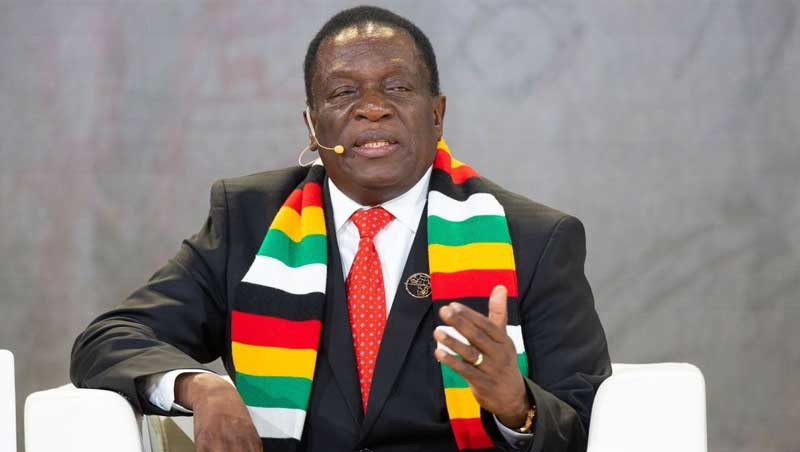
In last week’s instalment, I wrote about how limiting the indigenisation policy is to the broader development of the country. Local economic empowerment is not only about bisecting what is available, but finding new ways of expanding the economic cake.
During last week’s African National Congress (ANC) policy conference, the same issues that haunted Zimbabwe politics in the last decade were key on the ANC agenda. From a general perspective and when one considers the state of affairs between the two countries, there is a world of difference.
South Africa and Zimbabwe represent opposite extremes. One has the biggest economy in Africa, with Johannesburg alone contributing more than 12% of Africa’s gross domestic product, while Zimbabwe is on the opposite end. South Africa’s constitution is considered among the best in the world, while Zimbabwe is struggling to come up with one.
Nelson Mandela (former President) is seen as a global icon, for forgiving those who imprisoned him for 27 years and letting them keep the economy in new South Africa. The same cannot be said of Zimbabwe after events of the land reform and current indigenisation drive. And for that President Robert Mugabe has lost his global icon status. There still exists a strong historical bond between the two, though. Zimbabwe hosted some of the ANC leaders during their struggle, while South Africa has hosted Zimbabwean refugees during the last decade. In the early ’90s, Zimbabwe had to shelf its land reform programme to avoid jeopardising negotiations which led to South African independence.
The last thing ANC needed at the time was a white alarm over land dispossession. On the other hand South Africa invested so much in brokering power between Zanu PF and MDC which led to the unity government.
Despite these differences there are underlying similarities — at least similar agenda issues that have bifurcated into different policy directions.
These, I suppose by accident, are seemingly converging. Sadly it is the liberation promises that have suffered in the process.
Before South Africa attained independence, the ANC made a deliberate effort not to make huge investment into education. They wanted to avoid the Zimbabwe scenario where millions of people are educated and yet they could not get employment.
- Chamisa under fire over US$120K donation
- Mavhunga puts DeMbare into Chibuku quarterfinals
- Pension funds bet on Cabora Bassa oilfields
- Councils defy govt fire tender directive
Keep Reading
Perhaps they thought it was an easy way of managing expectations and frustrations.
Secondly, they did not only prefer to leave the economy intact, but left it in hands of their former oppressors, while Zimbabwe opted for the opposite route. As a reconciliation gesture Mandela promised the rainbow to break racial barriers.
Millions of black South Africans were now able to cross over to the white-only areas. Of course it created its own excitement and sense of victory among the general population even when they were just on the fringes of or far from the economic cake.
But the million dollar question today is, what kind of a future did Mandela and Mugabe envisage? Was South Africa comfortable with an illiterate population and a strong white-owned economy? Was Zimbabwe comfortable having the second highest literacy rate in Africa when those people could not access employment? Mandela wanted to maintain the economy, while Mugabe wanted an educated nation.
Mandela wanted a rainbow nation where everyone was equal even when South Africa was emerging out of a state of serious racial marginalisation, while on the other hand Zimbabwe, wanted an educationally empowered citizen while killing the goose that lay the golden egg. Today, black South Africans need a piece of the economy but their education system was and is still their greatest let down. The educated Zimbabweans need jobs and which only a functioning economy such as South Africa can provide that. The fast growing South African economy too needs skilled labour and it has used this to absorb foreign labour. Black South Africans and the Zimbabwe economy are the biggest losers. The white South Africans business community will not renege on their love for foreign labour. The result is a black South African perpetually marginalised from the economy, a Zimbabwe that suffers a brain drain and finally xenophobia as blacks blame each other for everything that goes wrong. The whites can’t help but watch as that buys them more time and romance with the economy. Interestingly both governments are playing ball to this banter. Some Zimbabwe ministers are happy training nurses and other professionals and shipping them outside the country as if they do not dream of developing their own country. They have forgotten that among their roles as the government is ensuring better life for their people. On the South African side, the education system remains a major circus. Literacy levels are still low. A scandalous story about undelivered books to Limpopo province dominated headlines last week. The state of rural schools does not parallel a country that boasts of the biggest economy in Africa. While all this is happening, black South Africans are fast becoming frustrated and losing patience, but the economy keeps growing and getting sophisticated. It is becoming even more difficult for the government to reconfigure. There are a lot of global interests in it such that talk of nationalisation is just hot air. But South Africa still remains very rainbow with the economy in the hands of few whites. President Jacob Zuma acknowledged this during last week’s ANC policy conference. The Black Economic Empowerment which is an economic lullaby for black South Africans has not yielded meaningful results. For frustrated ANC youth league, they can only look up to Zimbabwe for policy examples on economic narratives that Mandela’s time did not offer. They do not seem to care what happens thereafter as they have little to lose. That Zimbabwe itself suffered irreparable economic damage because of their policy direction is of less importance to them. Perhaps it is high time the two countries look for new Mandelas and Mugabes to even things out. Black South Africans can not suffer while their economy is oozing milk and honey. At the same time Zimbabwe can not be a supplier of labour for other countries’ economies as if it did not have its own development priorities. lTapiwa Gomo is a development consultant based in Pretoria, South Africa











